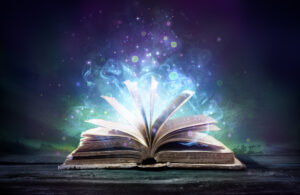Great books have the power to reconfigure and manipulate our entire understanding of reality – and our place within it. Whether you’re looking for guidance or are in need of deep contemplative reflection, these top five mind-altering and consciousness-raising books will undoubtedly fulfill your expectations.
In no particular order…
Stumbling on Happiness, by Daniel Gilbert

Daniel Gilbert is a famous Harvard psychologist, specializing in the everyday flaws and biases of the human mind. According to Gilbert, humans are guilty of incorrectly judging others, inaccurate about what makes people happy, and even where you’re happy right here, in this moment.
Throughout the course of the book, Gilbert proves that happiness has little to do with what happens to us in our lives, and more to do with our outlook or our interpretation of things.
The reason? We each have a “psychological immune system,” that is responsible for explaining away our past experiences, future projections, or even current situations to ensure we maintain a baseline and steady level of happiness. It’s when this psychological immune system becomes weak that we fall into depression or experience mental breakdowns.
The True Believer, by Eric Hoffer
Eric Hoffer, by the end of this novel, proves to the reader why we believe in extremist ideologies, fundamentalism and fanaticism. Rather than beating around the bush, Hoffer helps readers understand everything from why they give up their identities for insane causes to how wars and revolutions are brought about and concluded.
This page turner is nothing short of brilliant, helping individuals understand how history came to be – and more importantly – our individual and important role in shaping the future.
Antifragile: Things That Gain From Disorder, by Nassim Taleb
This book is chock full of life-changing, world-affecting ideas sure to rattle your entire existence and outlook. This may sound like a lofty claim, but within the confines of this book, for instance, Taleb proves:
· Often times, the most documented and historically acclaimed events are the least anticipated. He coins these, “Black Swan” events.
· We’re naturally, as humans, inherently biased against noticing random events – and their corresponding impact in our lives.
· Due to the pace and range that technology is progressing, these “Black Swan” events are becoming increasingly common and more influential than ever anticipated.
· To cope, we need to build of systems to be “antifragile” to benefit and profit from unanticipated events.
In the span of this book, Taleb convinces the reader that everything they’ve ever conceived, and their interpretation of “progress” or “success” needs to be completely flipped on its head.
The Denial of Death, by Ernest Becker
 The Denial of Death rests on one revolutionary principle: human civilization is an elaborate, symbolic defense mechanism against the knowledge of our inevitable mortality.
The Denial of Death rests on one revolutionary principle: human civilization is an elaborate, symbolic defense mechanism against the knowledge of our inevitable mortality.
According to Becker, because man is the only animal sentient and capable enough of conceptualizing his own experience, man is also the only being capable of conceptualizing his own non-existence – his death.
Turns out, the ability to think about life, question it and imagine future possibilities has its caveats. The gift of realizing and imagining what lies beyond the depths of this current life can be a curse. This terror inspires many of us to embark on a “hero project,” in which we put all our efforts into immortalizing ourselves through our deeds and actions as a means of immortalizing ourselves to live beyond our own lives.
Becker argues: all human conflict, violence and evil is merely a clashing and contradiction of hero projects. Evidently, it’s when individual hero projects fail that the world enters into unknown territories of fear, depression and war.
Civilization and its Discontents, by Sigmund Freud
Famous psychologist Sigmund Freud in “Civilization and its Discontents” compares “civilized” and “savage” human lives in order to reflect upon the meaning of the human race in general. Freud’s argument ultimately boils down to one simple thing: humans have a primal, animalistic instinct to eat, kill and procreate – it is only when humans repress these urges that civilizations form.
Evidently, what decides the purpose of life is simply the program of our primal pleasure principle.
Written just after World War II, Freud proves that humans have two options in life: repress our basic instincts to maintain a semblance of a cooperate and safe civilization, all the while making us irritable, miserable and neurotic, or letting our instincts play themselves out and reverting back to chaotic, primal states of being. Evidently, this internal battle proved to be the source and foundation for war.
So the next time you find yourself stuck for something to read, turn to one of these for a read that really could change your life.
Written by: The Hearty Soul
SOURCES

